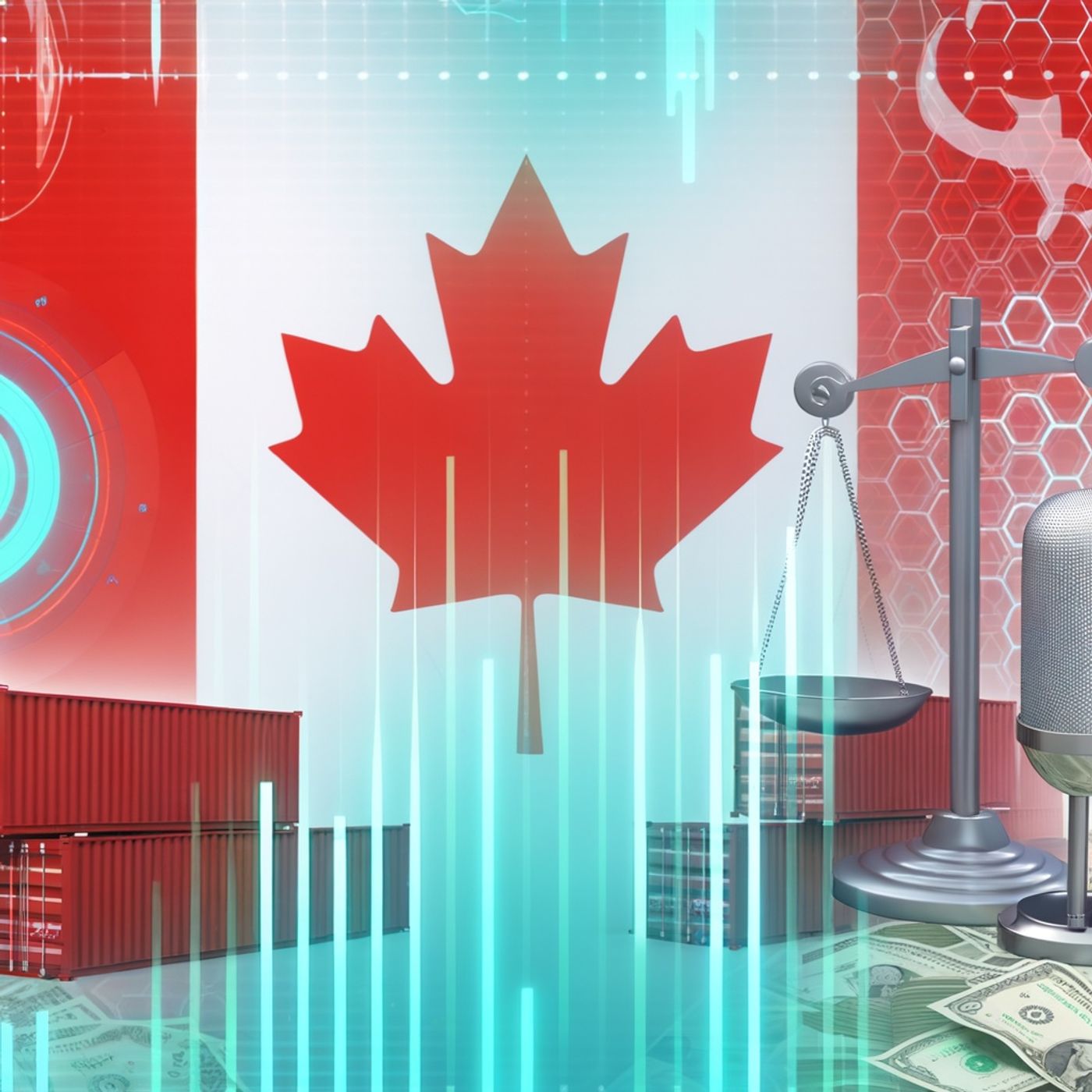Canada Removes Most Retaliatory Tariffs on US Goods, Preserves Strategic Trade Advantage Ahead of USMCA Review
Update: 2025-08-25
Description
Listeners, major developments have unfolded this week on the US-Canada tariff front, offering new clarity as both countries recalibrate trade policy in the midst of the Trump administration’s ongoing tariff agenda. Prime Minister Mark Carney announced that Canada is removing most retaliatory tariffs on US goods, a move designed to match similar US tariff exemptions and now ensures over 85 percent of Canadian exports to the United States remain tariff-free. Carney framed the decision as a tactical step to preserve Canada’s trade advantage ahead of the critical USMCA review scheduled for 2026, while also maintaining vital tariffs on steel, aluminum, and autos as negotiations with Washington continue, according to CBT News.
The US, under President Donald Trump, recently hiked tariffs on selected Canadian imports to 35 percent effective August 1st, a significant escalation from the prior 25 percent rate. The White House justified the increase by referencing unresolved disputes over drug enforcement and what it described as Canadian retaliation against US policies, as reported by GetTransport News. These new tariffs could have a major impact on pricing for Canadian businesses that don’t meet tight USMCA compliance and are already sending ripples through logistics and supply chain operations. The Canadian Chamber of Commerce has strongly criticized Washington’s approach, warning that unpredictable trade relations are undermining business confidence.
Tariffs initially put in place by former Prime Minister Justin Trudeau in March covered a broad range of US goods, from oranges and alcohol to motorcycles and cosmetics. With the rollback, items like household appliances, consumer foods, and clothing are expected to drop in price for Canadian households and firms, offering some relief after months of rising costs. Michael Campbell, a leading Canadian financial analyst quoted by Global News, said “No matter which side of the border you’re on, tariffs are a bad deal for consumers and businesses because they pay the tariff, no matter which country.”
Not everyone is pleased by the Canadian government’s softer approach. Major unions and political opposition figures say the government is caving to US pressure and failing to stand up for Canadian workers in key sectors like autos and steel. However, Goldy Hyder, president of the Business Council of Canada, described the move as pragmatic and the focus now firmly on securing a successful review and renewal of the US-Mexico-Canada Agreement.
Despite the heightened rhetoric, Prime Minister Carney insists his government is not appeasing Washington, noting that the new exemptions simply align with US carve-outs and are not unilateral concessions. Economists believe the rollback could help ease cost pressures for both businesses and households who have been battling inflation and supply chain woes since the first round of tariffs earlier this year.
Listeners, thanks for tuning in and don’t forget to subscribe to Canada Tariff News and Tracker for more timely updates. This has been a quiet please production, for more check out quiet please dot ai.
For more check out https://www.quietperiodplease.com/
Avoid ths tariff fee's and check out these deals https://amzn.to/4iaM94Q
This content was created in partnership and with the help of Artificial Intelligence AI
The US, under President Donald Trump, recently hiked tariffs on selected Canadian imports to 35 percent effective August 1st, a significant escalation from the prior 25 percent rate. The White House justified the increase by referencing unresolved disputes over drug enforcement and what it described as Canadian retaliation against US policies, as reported by GetTransport News. These new tariffs could have a major impact on pricing for Canadian businesses that don’t meet tight USMCA compliance and are already sending ripples through logistics and supply chain operations. The Canadian Chamber of Commerce has strongly criticized Washington’s approach, warning that unpredictable trade relations are undermining business confidence.
Tariffs initially put in place by former Prime Minister Justin Trudeau in March covered a broad range of US goods, from oranges and alcohol to motorcycles and cosmetics. With the rollback, items like household appliances, consumer foods, and clothing are expected to drop in price for Canadian households and firms, offering some relief after months of rising costs. Michael Campbell, a leading Canadian financial analyst quoted by Global News, said “No matter which side of the border you’re on, tariffs are a bad deal for consumers and businesses because they pay the tariff, no matter which country.”
Not everyone is pleased by the Canadian government’s softer approach. Major unions and political opposition figures say the government is caving to US pressure and failing to stand up for Canadian workers in key sectors like autos and steel. However, Goldy Hyder, president of the Business Council of Canada, described the move as pragmatic and the focus now firmly on securing a successful review and renewal of the US-Mexico-Canada Agreement.
Despite the heightened rhetoric, Prime Minister Carney insists his government is not appeasing Washington, noting that the new exemptions simply align with US carve-outs and are not unilateral concessions. Economists believe the rollback could help ease cost pressures for both businesses and households who have been battling inflation and supply chain woes since the first round of tariffs earlier this year.
Listeners, thanks for tuning in and don’t forget to subscribe to Canada Tariff News and Tracker for more timely updates. This has been a quiet please production, for more check out quiet please dot ai.
For more check out https://www.quietperiodplease.com/
Avoid ths tariff fee's and check out these deals https://amzn.to/4iaM94Q
This content was created in partnership and with the help of Artificial Intelligence AI
Comments
In Channel





